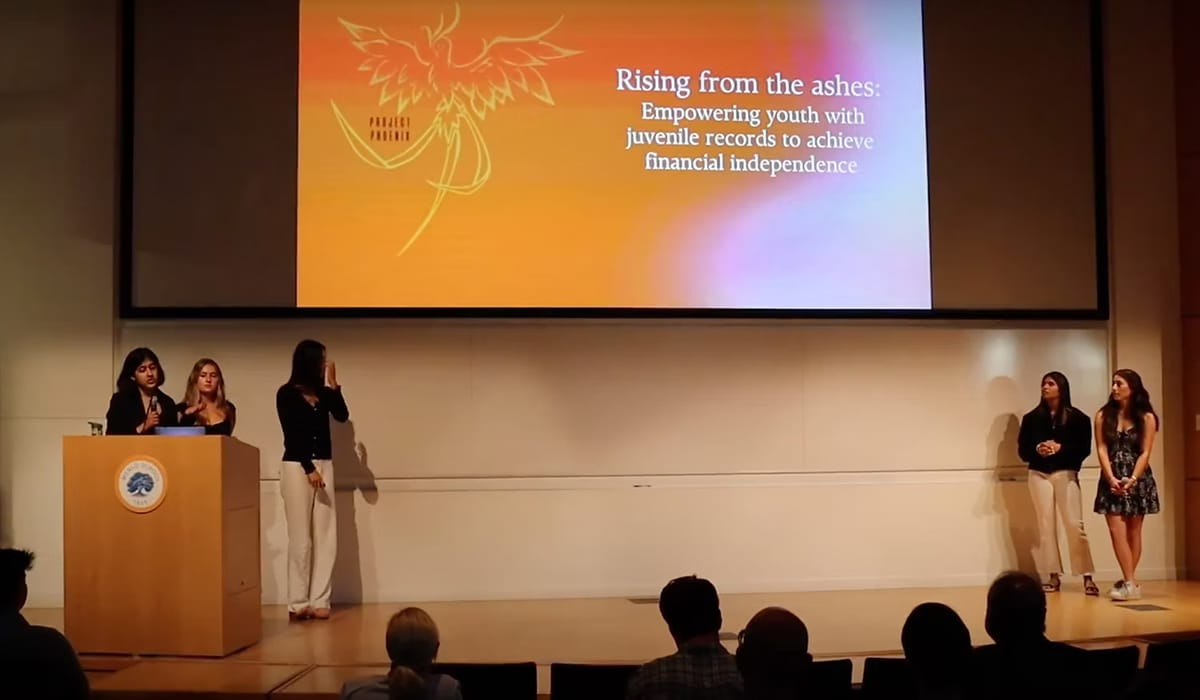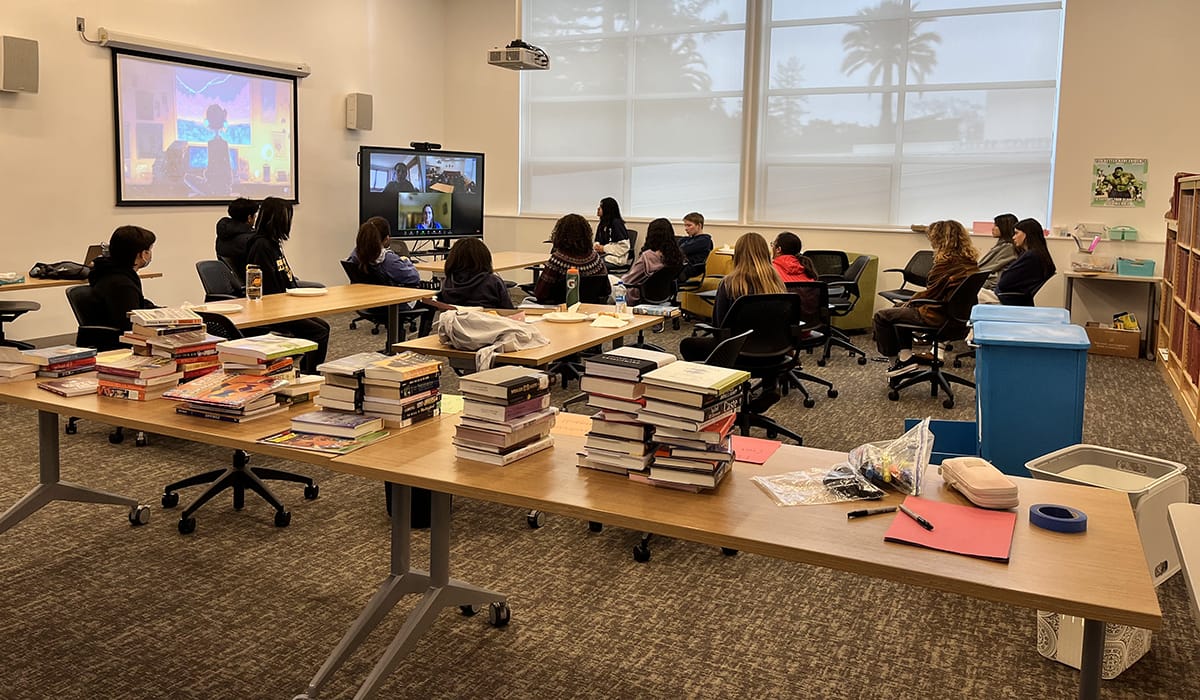Teen Volunteer’s Mission to Open Conversation About Changing the American Prison System

Meet Daily Point of Light Award honoree Ruchi Mangtani. Read her story, and nominate an outstanding volunteer or family as a Daily Point of Light.
What would prisons look like if they were designed to rehabilitate rather than punish? That is the question Ruchi Mangtani is asking. Her initial interest in social justice and community service evolved from seeing her parents, both immigrants, struggle. Her mom’s story was particularly central to discovering her core values and desire to work in civil rights law. But her interest in alternatives to the prison system was innate and inspired her to hold book drives which led to donations of 1,000+ books to prisons in eight states.
In 2022, as participation in her work expanded, she founded JusticeBound in 2022 to encourage youth conversation about prison reform and the effectiveness of the system. She now has a team of around 20 volunteers and strong organizational partners that take on a wide variety of projects, research and educational initiatives. Both Ruchi and her organization have won multiple awards and grants, one of which took her to Norway on a prison research trip. After returning to the US, she presented her findings at a conference at Columbia University, where she plans to attend college next year.
What inspired you to get started with this initiative?
The need for prison reform was always very apparent to me. When I was around 14, I did a lot of research on the prison system, specifically during the 1970s and 80s. It was a niche interest I had. I read Are Prisons Obsolete? by Angela Davis and Discipline and Punish by Michael Foucault. That transformed the way I thought about the prison system and inspired me to go out and do something.
I started off with book drives for prisons at my high school and nearby schools. My research showed that reading—and education in general—can help reduce recidivism and was essential during the Prisoners’ Rights and Black Power movements.
Book drives are accessible and kept people interested in a way that didn’t ask too much of them. But many wanted to get more involved, which is why I ended up creating this organization, so we could all work together. I don’t see myself as the leader. Everyone works together, shares their ideas and pursues whatever is most important to them.

Tell us about your volunteer role with JusticeBound.
The book drives are still what we’re most known for. We set up the box and, a week or two later, we get together to sort for what’s allowed in prisons. I often try to have speakers come or prepare some discussion questions. We donate books that aren’t allowed in prisons to local libraries who often exchange them with books that they’re not using anymore.
We also do educational workshops and international webinars with criminal justice experts. I’m close with our partners, and we love to have them speak. For instance, when I had the privilege of going on a grant-funded research trip to Norway, I made contacts who will discuss what a prison system can look like that isn’t purely punitive.
We do a lot of research and use social media to inform and call attention to important issues or innovative programs. For example, with the L.A. wildfires, many firefighters were people in juvenile hall who were able to participate in a program to become firefighters. They’ve done immensely dangerous work that we should all be grateful for.
Last year, I was also the vice-chair of membership for the Juvenile Justice & Delinquency Prevention Commission. My role was to search for people to apply for the commission, read applications and interview them as part of the membership committee. The goal was to ensure the commission is informed by a variety of voices, including those who have been through the system themselves. Additionally, I initiated a project to replace strip searching in juvenile facilities with scanning technology, inspected juvenile halls and helped create voter education curricula for systems-impacted youth.
What’s been the most rewarding part of your work?
It’s the relationships I’ve built and mentors I’ve found. I’m coming into this role from an inevitably ignorant perspective, because I haven’t been through the experience myself. When you’re in that position, you need to know when to step back. There’s a lot you don’t know, like the actual feelings and experiences that these kids are having. I’ve appreciated not just leading, but listening.
Are there any upcoming projects, partnerships or events you’re excited about?
We supported 52 youth in San Mateo County juvenile halls with Project Phoenix with $3,000 seed money awarded through a school competition. We were able to purchase hygiene products, clothes, bus passes and more to help them get back on their feet. We also worked with the organization Jobs for Youth. We’re currently partnering with them to start free workshops in juvenile hall facilities on how to apply to a job, create a resume and search for a job.
Why is it important for others to get involved with causes they care about?
In our culture, when we see a problem, we have a tendency to avoid it. The prison system is a drastic and draconian manifestation of that. We think we can just lock up the problem and it’ll just go away. This individual is “bad.” They’re morally deviant in some way and intrinsically different from those who don’t commit crimes. It only makes the problem worse when we ignore the root causes and the person’s humanity. We see it in our extremely high recidivism rates, which is why I call the system paradoxical. What is the point of the prison system if the vast majority of people released are going back a few years later?
What do you want people to learn from your story?
I hope young people aren’t deterred by restrictions. If there’s something they’re passionate about, they can find a way. They can find some small area to fit into. For me, it was book drives, and then it branched off into many amazing, beautiful things. Trust the process. You can do great things.
Do you want to make a difference in your community like Ruchi? Find local volunteer opportunities.
